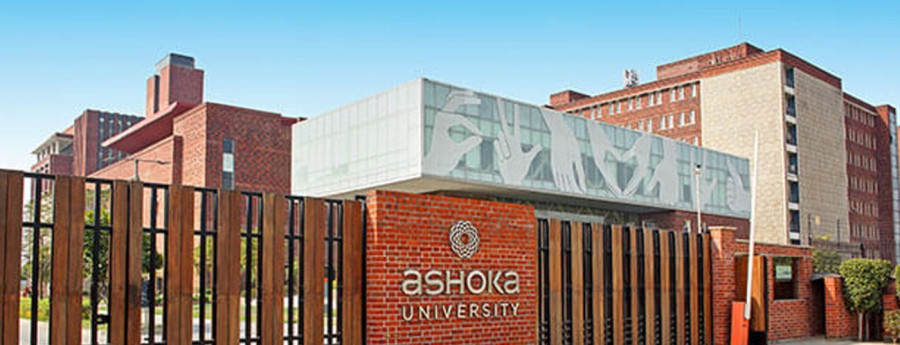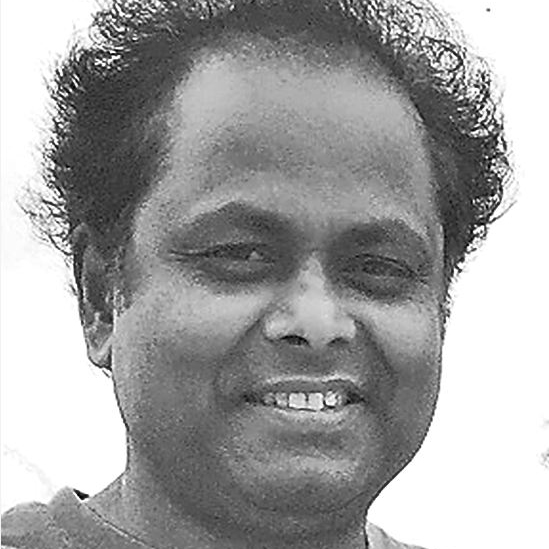Columns
Cosmopolitan vs parochial
India’s tug-of-war between its liberal intellectuals and Hindutva leaders holds a lesson for all.
Pramod Mishra
The Indian political scientist and commentator Pratap Bhanu Mehta’s resignation from Ashoka University in India has foregrounded the impediments in building institutions of higher education in the non-Western world. The Mehta controversy also raises questions about the nexus between business tycoons and Hindutva forces in India in building or undermining institutions. India’s most recent academic misstep has lessons for its neighbours and beyond, because India is not a dictatorship and boasts of being the largest democracy. The question before India is whether it can build world-class institutions.
Ashoka University near Delhi was conceived by a group of business tycoons, some from traditional Jain families, others as products of new entrepreneurship from India’s IITs (Indian Institute of Technology) and IIMs (Indian Institute of Management). Inspired by patriotism and motivated to do something for their country that would measure up to Oxbridge and the Ivy League, these founders conceived a premier university that would provide a liberal arts education in the arts, humanities and sciences. But the Mehta controversy shows that a premier university needs funds to run; business tycoons may be Ashoka’s founders, but such a university must not be run by business tycoons because they possess narrow interests and narrower visions when it comes to higher education. Otherwise, they will destroy their creation. Because such founders would not only view their university as a corporate product for monetary profit but, in India’s case, like to shape it in their or their rulers’ narrowmindedness.
It is not to say that American and British universities didn’t have wealthy donors and religious affiliations. In fact, most of these premier universities were founded originally by people who made their wealth in all kinds of ways through slave labour and colonial enterprises, and were initially founded to train the clergy of one Christian denomination or another. But, in time, they amalgamated the best values of their Judeo-Christian, Greco-Roman past, including those of the Renaissance, Reformation and the Enlightenment. Even then, they constantly refined their workings in all aspects—governance, curriculum and co-curricular offerings. While most of these premier private universities have religious denominations only in name, some still maintain their active faith-based orientation. However, in India’s case, except for the founding fathers of the republic, such as Nehru, Gandhi, Ambedkar and Tagore, those who get educated in the Euro-American universities have not been able to be political rulers and those who become rulers do not have that deep education background, whether from the West or South Asia.
With the emergence of new technology and globalisation, IIT and IIM graduates of India—some even getting their undergraduate degrees and MBAs from American universities—became successful entrepreneurs and made big money. And they were the ones who founded Ashoka University as a model of a world-class educational institution. But Indian politics, since the days of its enlightened leaders, has both democratised and descended into the hands of Hindu nationalists like Narendra Modi and Amit Shah and plebs like Laloo Yadav. And that’s the paradox of Indian progress—one step forward, one step backwards.
To understand the nexus of business and orthodox religion, we need to look at the current ruling party of India, Bharatiya Janata Party (BJP). Its parent party was called Janasangh, a gathering of India’s traditional business groups and staunch Hindutva believers. Prime Minister Modi and his right-hand man Amit Shah embody this dual identity, derided in the past but now very successful in India’s body politics. On the other hand, the new tycoons are products of India’s IITs and IIMs with a slapdash education at American universities, but their liberal arts secular conscience seems to be in constant conflict with their Hindu-Jain souls. Modi-led pressure on Ashoka University’s founders to toe his line can be seen in this respect.
Nehru wanted India to be modern in science and technology and secular in matters of religion. He founded the IITs that are devoted to technology education. Later, in the 1960s, Jawaharlal Nehru University was founded to focus on the sciences, humanities and arts. This division between science and technology and the humanities in establishing institutions of higher learning was a flawed concept. They should have been combined in one institution to produce scientists and entrepreneurs who would be equally immersed in the humanities. A new leadership with a scientific mind and a humanist soul may have emerged. But it didn’t happen.
So, India has seen a clash between the PB Mehta personality with the Modi personality. These are two personalities with two different orientations and grooming. One has become academic and intellectual and the other controls the masses. Nehru’s vision was right, but the way he went about executing his vision and laying the foundations to realise that vision turned out to be flawed. People like Mehta, educated in institutions with St prefixes, such as St Edward, St Xavier’s, and St John’s (at Oxford), and Princeton have received liberal arts education that has helped cultivate a cosmopolitan, secular outlook while Modi and Shah, raised in the sakhas of the RSS and in the principles of Hindutva ideologues have ingrained in them a parochial worldview.
And these new tycoons of new technology, confused about their conflicting desires (at once Hindu nationalist and world-class cosmopolitans) have run into the whirlwind of a paradox and bowed to the pressures of the Modi government. Mehta resigned from his Ashoka University position because these founding tycoons let him know that he had become ‘a political liability’ for the university as a result of his writing against the Modi government’s growing intolerance of critical voices and practices of different faiths. But a few days after Mehta wrote an open letter to the students, the University coaxed Mehta and his colleague who had also resigned in support of Mehta to issue a joint statement acknowledging the ‘lapse’ in the process and affirming AU’s commitment to academic freedom and autonomy.
This development may be viewed as an example of growing pains, but also can be seen as the result of clashing worldviews and values between the political class of India and its intellectual class, the former the product more and more of Hindu and local values and the latter Anglophone, Western and cosmopolitan. In Nepal, too, we have seen time and again the conflict between the nationalist locally-educated home or prime minister and the well-educated academic and intellectual class in making university appointments and running Nepal’s universities. As long as this cosmopolitan intellectual class doesn’t teach itself to speak like Modi and get into politics, and as long as the Mehtas do not replace the Modis in politics, India’s woes will continue—and not just in higher education.




 11.12°C Kathmandu
11.12°C Kathmandu















